A few months back, I was talking with my State Representative, Cynthia Ball, about my interest in connecting with other organizations and people who were making change in our communities. I mentioned my passion for inequality and women. She recommended I talk to Sarah Preston so I reached out and asked if she’d be willing to give me some of her time. During our talk, I learned a lot about Lillian’s List and what it was like for women to run from office. She was encouraging, but realistic. Apparently, it takes 7 different asks before a woman finally does run for office.
In my years as an advocate with RESULTS, I’ve become more engaged with policy and the power of everyday stories to make change. Sarah encourages people to attend trainings so I found myself at a Lillian’s List and LEAD NC candidate training. I’m interested in running for office and am getting my life ready so I can pursue the right opportunity to serve my community and state in public service. It’s great to know women leaders have someone like Sarah there to encourage, guide and push them in order to do that. What powerful ways, we women work. More women should be aware of the potential organizations out there they can join or seek out as they put their names in the hat to run for office so I’m grateful that Sarah Preston agreed to share her story with me and in this blog series.
- What did you want to be when you “grew up” and how has that evolved?
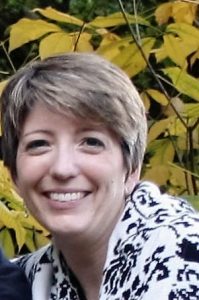
Sarah Preston
I have always been interested in being a storyteller. When I was a kid, I wanted to be a writer, then a theater director, but I ended up in law school and started working as policy advocate for a civil rights nonprofit. At the end of the day, advocating for policy change is about illustrating policy through compelling real stories. Now, I work with women to help them step into their power, partially through telling their own stories. So my love of story and storytelling has remained with me and evolved throughout my professional career.
- What do you do in your “day job” and why have you chosen that?
I am the Executive Director of a nonprofit called Lillian’s List, which recruits, trains, and supports progressive women who are champions of reproductive freedom and gender equity in running for office. I am lucky because my day job is also something I am incredibly passionate about. I have always wanted to see the very best policies — policies that are designed to protect and support our communities — get enacted, and working with Lillian’s List allows me to work towards that end by supporting amazing women who want to run for public office.
- I greatly admire the work you do there. How did you get into what you do now?
I started out on this path in law school. There was an opportunity to pursue a legislative certificate that required students to intern for a lobbyist and legislator. I decided to pursue that certificate and interned for the only Democratic woman in the state Senate in Iowa at the time. I also interned for the ACLU of Iowa’s lobbyist. Those two experiences were formative and set the stage for my later work with the ACLU of North Carolina and my work now with Lillian’s List. I do believe that all of our communities would be safer and in a better situation if everyone’s constitutional rights were respected.
Interning for the Senator gave me the inside perspective on how a legislator negotiates and how she works for her constituents. She was working to pass a bill to provide mental health insurance coverage. She really worked behind the scenes with all the stakeholders to get her policy through because she knew it would be good for Iowans. She showed real leadership. It may not have been the most exciting policy being debated in the legislature that year, but it meant a lot to a lot of people who were suffering and couldn’t afford treatment.
- That’s very moving. What do you enjoy most about your work?
I love working with all these amazing women who want to run for office. They are courageous and incredibly committed to their communities. I also love supporting the progressive women already serving in the legislature. I have gotten to know many of them and see how they are on the front lines and fight every day for a better North Carolina. It is inspiring, especially when the news out of Raleigh and D.C. is often difficult to take.
- Being close to women in leadership, I’m curious about how you see them engage. What are some strengths and barriers for women which you have observed?
I’ve heard a lot of women in politics say they got involved because they were angry, usually over some harmful policy. Women are motivated to act when they see something that could be harmful happening in their communities. The women I have worked with at the legislature are also the best negotiators. I think they identify common ground, the openings where we can still have a dialogue, and they are willing to have those conversations. Certainly, the perspective that women bring is a great advantage to their work and is valuable to everyone.
There are still real barriers for women in politics. I saw it in the legislature in the way that the ideas presented by the women were dismissed until a man picked up the mantle. There is a real gender bias in how women are recruited to run for office as well. But it doesn’t extend to voters. Women win elections at the same rate as their male colleagues so I hope this trend is changing.
- How have you dealt with adversity?
I have been very lucky. I consider it a privilege to be able to work at Lillian’s List and, before that, working as the Policy Director for the ACLU-NC was a tremendous privilege. I am grateful for the experience. That being said, it could be very frustrating to advocate for voting rights, reproductive freedom, racial justice – all these important rights that the legislature was chipping away at. I had to remember regularly why I was doing this work in the first place and savor the victories. Government can be a force for good when policies that respect the rights of the people and level the playing field for everyone are put into place. Returning to my values always helps me face adversity.
- I can relate to the frustration in advocating for justice and the slow progress we see sometimes. How do you feel most inspired?
I am inspired by people. It is always inspiring to see a person overcome an obstacle or set a goal, a challenge, for themselves and achieve it, but I am also inspired right now by all the women that are rolling up their sleeves and getting to work after the 2016 election. I am inspired by the 15,000 women who have contacted EMILY’s List to say they want to run for office. I am inspired by people who refuse to be defeated and come together to build their communities and support one another.
- What causes and organizations are you most passionate about?
Well, I obviously care a great deal about Lillian’s List. Making sure that women’s voices are heard, that women are always at the table when it counts, is very important to me. I also think the ACLU does great work to defend everyone’s rights. I really value the health care services and advocacy provided by Planned Parenthood. Women won’t truly achieve equity until reproductive freedom is secured and no longer a political football. All three of these organizations are committed to that value.
- You’ve been surrounded by some incredible people doing great work. Who do you look up to?
I really look up to my dad. Not only did he raise my sister and me, setting a wonderful example, but he supported hundreds, if not thousands of children as a public high school teacher. He worked in public schools his entire career and really believes in teaching each child individually. He also taught my sister and me that being a leader means serving your community, finding ways to help and support other people, not yourself.
- I like that you identify helping and supporting other people. What big change can you identify that you are glad that happened and how did it transform you and your life?
A few years ago, I had the opportunity to serve as the Acting Executive Director for the ACLU-NC, having served as the Policy Director for about nine years before that. It opened the door for me to think about moving into a different type of work and taking on more of a leadership, executive role. If I had not had that opportunity, I would not have pursued the position I am in now.
Thanks for reading Sarah’s story. Share in the comments how it impacted you or share it on social media. Check out next week’s weekly post on Women & the Ways We Work. Missed the others? Take a look at my blog to read them. Know someone you think should be featured or would you like to be featured? Can I help you or your organization with a storytelling project? Contact me and let’s chat.

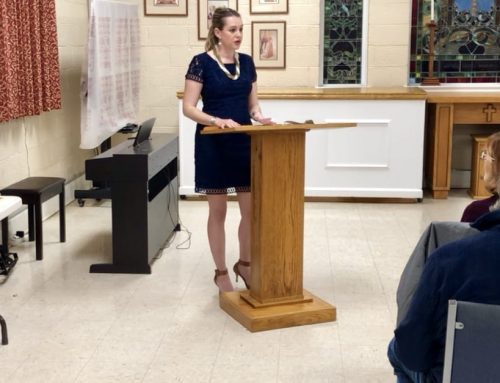
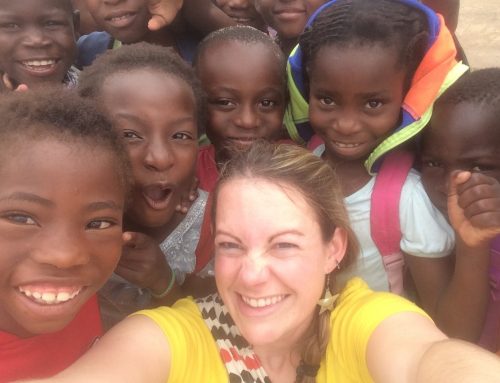
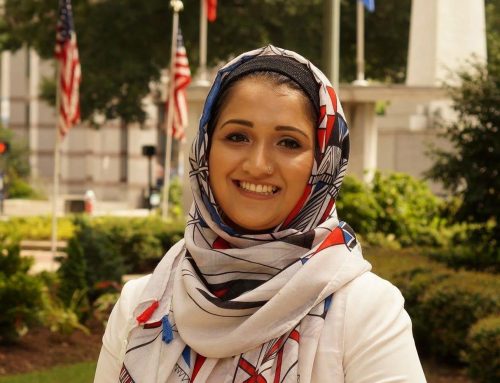
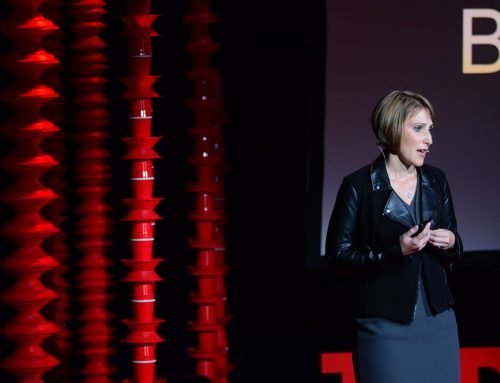
Leave A Comment
You must be logged in to post a comment.